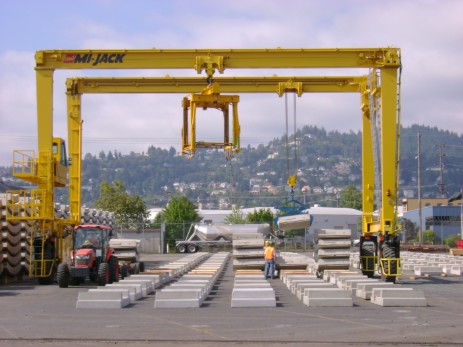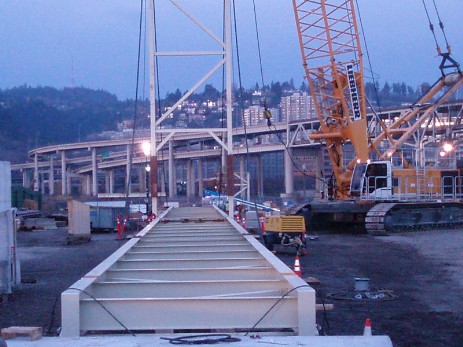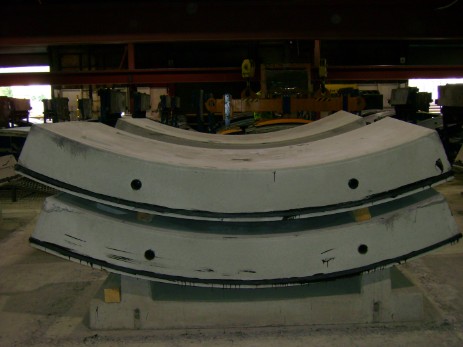Combined Sewer Overflow Project - Northwest Geotech

Main menu:

Combined Sewer Overflow Project



Materials Testing/Special Inspection/Laboratory
Testing
In 1994 the City of Portland and the Oregon Department
of Environmental Quality agreed to a combined sewer
abatement plan. Combined Sewer Overflow Project
was the largest project included in the twenty year
abatement plan to improve watershed health, restore
habitat for endangered salmon and steelhead, and reduce
raw sewage overflow from contaminating the Willamette
River by 94% by the year 2011. This reduction in
combined sewer overflows equates to more than three
billion gallons of raw sewage annually.
The East Side Combined Sewer Overflow Project (ESCSO)
is the final and one of the largest aspects of the
abatement plan, and at $382.5 million, the “Big Pipe
Project” is the largest public works contract ever
awarded by the City of Portland. The 22-foot diameter
ESCSO tunnel spans a 6-mile distance at depths of up to
165 feet below the City of Portland. Seven shafts,
ranging from 49 to 67 feet in diameter were also
constructed to connect existing outfall pipes to the
tunnel. NTI provided materials testing and special
inspection in support of the project. NTl’s duties
included material quality control for the fiber
reinforced and non-fiber reinforced pre-cast concrete
tunnel panels, water quality sampling and testing,
welding inspection of the TBM cutter heads, and
structural steel inspections of welding and
high-strength bolting for the waste material conveyor
system. In addition, NTI assisted with design, and
managed the installation and analysis of geophysical
site monitoring systems, including bore hole
inclinometers/piezometers and strain gauges. NTl’s
material quality control testing included providing the
City of Portland an experienced field inspection
representative for full-time construction monitoring and
quality assurance of the precast plant construction
activities. NTI also provided laboratory testing that
included split-tensile testing of fiber reinforced
concrete, compressive strength testing of the fiber
reinforced and non-fiber reinforced concrete, density,
absorption and voids of hardened concrete, and flexural
performance of fiber reinforced concrete (using beam
with third-point loading) for each of the 48,000 tunnel
segments that were utilized for the ESCSO.
At 14 feet in diameter, 120 feet deep, and four miles
long, the $293 million West Side Combined Sewer Overflow
Project (WSCSO) is a close second to its sister tunnel,
the ESCSO, as the second largest public works contract
ever awarded by the City of Portland. The tunnel runs
from SW Clay Street in Downtown Portland, takes a near
one-mile journey under the Willamette River, and ends at
a 220 million gallon per day pump station on Swan
Island. The WSCSO also includes five shafts that connect
the tunnel to existing outfalls and allow for
maintenance access. For over two years, NTI provided
materials testing, laboratory testing, and special
inspection in support of this project. Duties included
rheological testing of the bentonite slurry utilized
throughout the project. Due to geological composition,
the material the tunnel boring machines were required to
pass through was not self-supporting. This situation
required a slurry mixture to be pumped into the ground
ahead of the cutters on the tunneling machines to keep
the ground from collapsing. While this system of pumping
bentonite slurry has been used in Europe, the WSCSO
tunnel is the first time it has been utilized in the
United States. The rheological properties of the slurry
and its ability to “plug” highly permeable gravels were
critically important to the effectiveness and
productivity of the tunnel boring machines. This
dependency on a reliable and consistent slurry mix
directly influenced the cost of the tunnel boring
operations and consequently the overall cost of the
project. The bentonite slurry testing included density,
viscosity, yield point, filtration, and soil
permeability. In addition, NTI provided special
inspection of structural steel construction, including
welding and high-strength bolting in support of the
construction of the tunnel head houses and shafts.